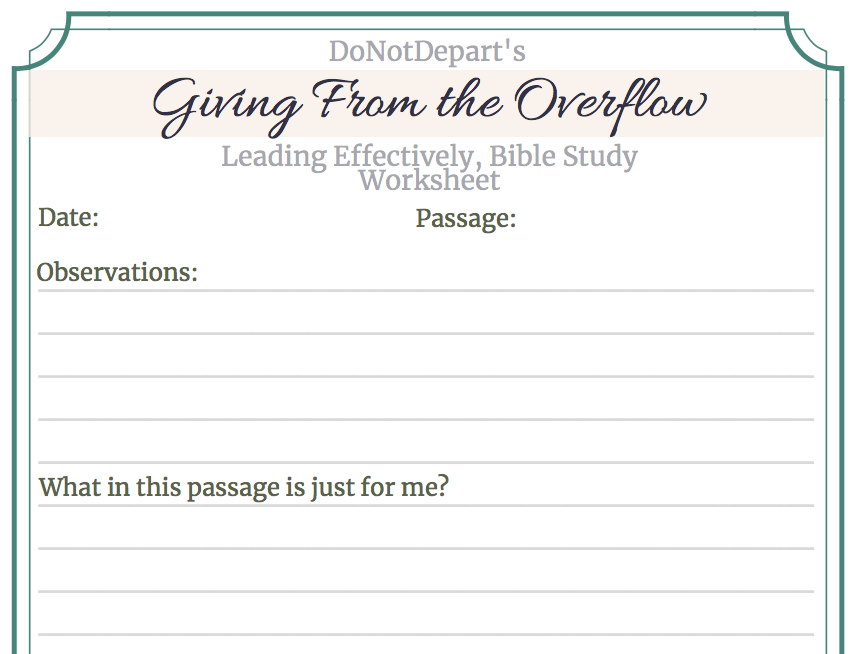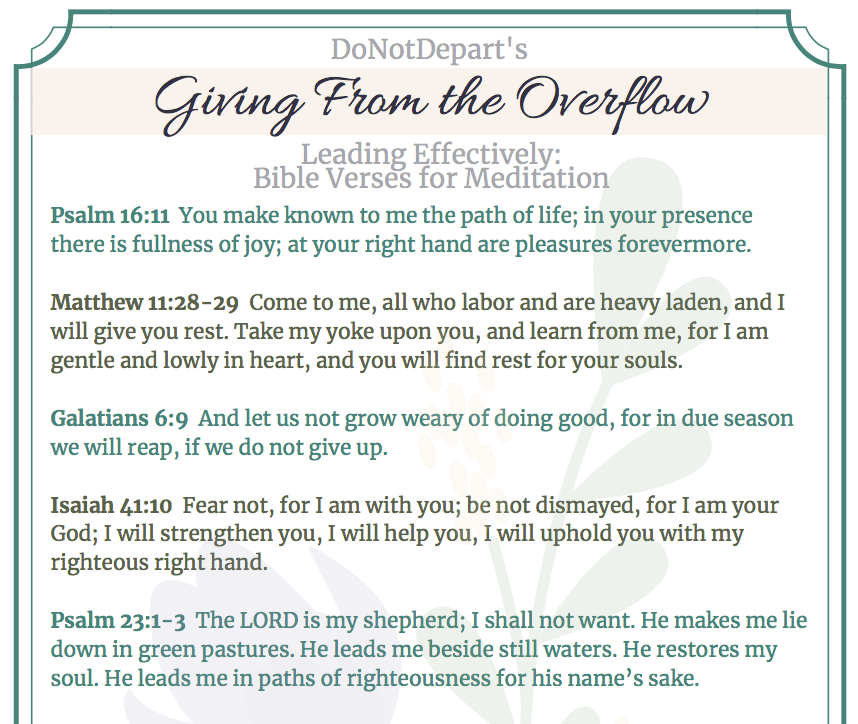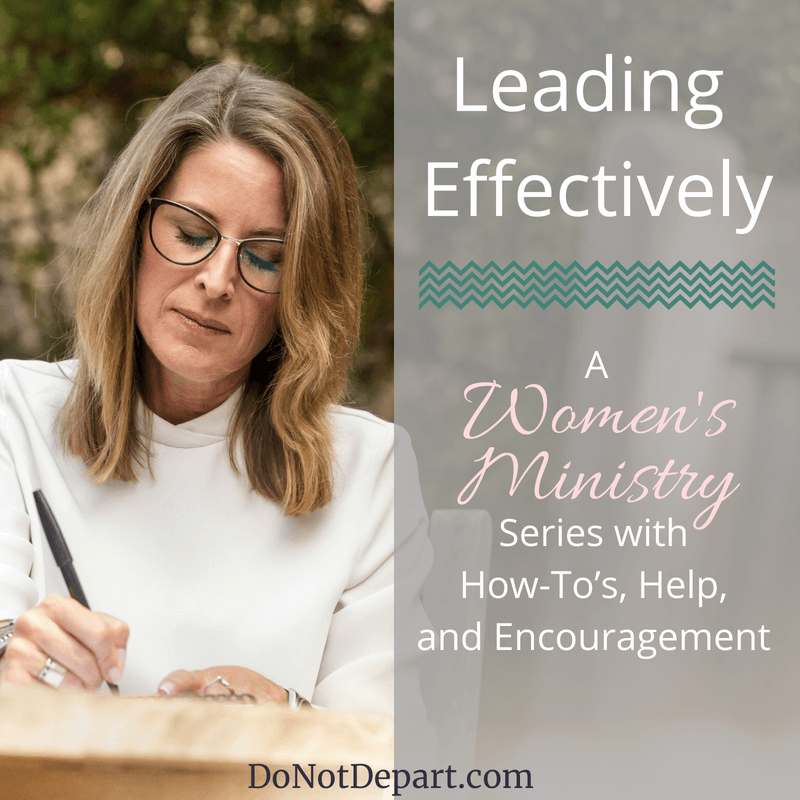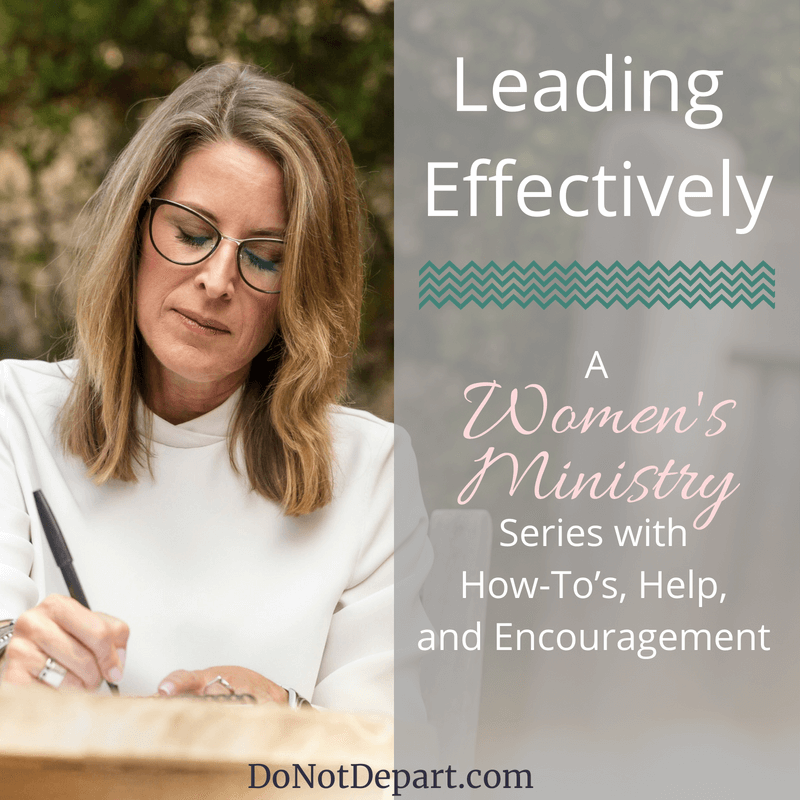All this month on the blog, we’ve looked at ways we Christian women can lead with purpose and direction. We want to help you lead effectively— this series is filled with how-to’s, help, and encouragement.The following wrap up contains a list of all the posts in this series.
Would you like to see this entire series at a glance? Just click here.

The Leading Effectively Series Posts
Giving from the Overflow: If you’re in Christian ministry, or feel called to it, remember that we should be giving from the overflow. This post offers encouragement to do that and a printable tool to help guide your personal quiet time.
What’s Your Point? 10 Questions to Ask Yourself as You Lead {+ Printable}: When you have something to say, whatever the forum, make your point clear and concise enough to be heard and felt. Lisa shares a printable that will help us do this!
5 Helpful Tools for More Effective Bible Study: If you are in Christian ministry, this post contains some helpful tools to help you more effectively study God’s Word as well as lead others to do the same.
Choosing Your Next Study: With so many (mostly) wonderful choices out there, how do you figure out which material will be the right one for your group? Here are three questions to help you make that decision.
Growing Together: Cultivating Relationships in Women’s Bible Studies: How can you make your group a place where everyone feels welcome and important? How can you cultivate a group culture that encourages vulnerability and real growth? This post has great tips!
We pray our series blesses you as you lead and bless others! May we all lead effectively, for God’s glory!
Blessings,
Ali



















